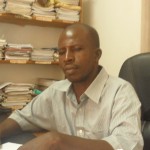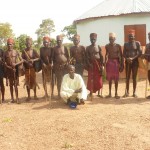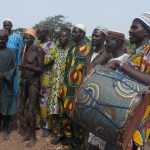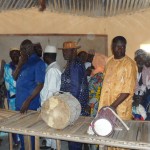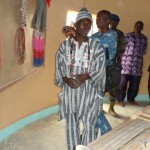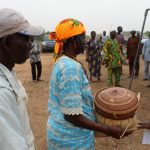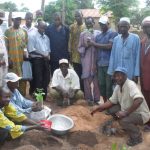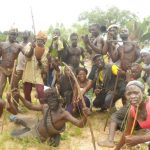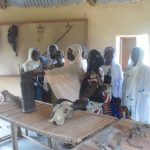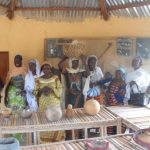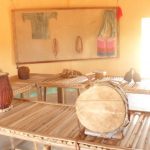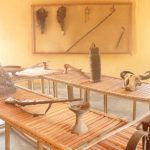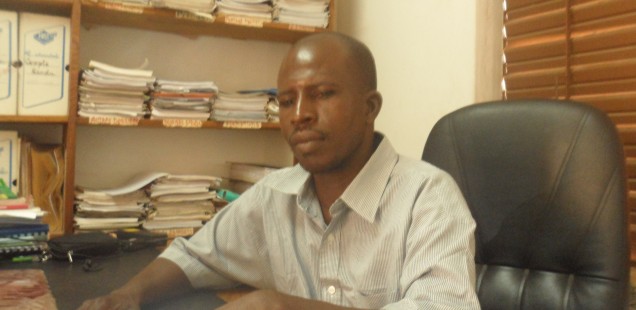
Alassane Zoumaru: inventing a Taneka cultural bank for collective memory and social cohesion (Benin)
Descendant of the Gnam-nê clan– rainmakers and family of great traditional priests and keepers of the timing of agricultural production in Benin– Alassane Zoumarou, is heir of a rich history and many artistic and cultural values. Very young, he expressed a strong sensitivity for cultural issues and cultural continuity. For that he possessed the necessary characteristics of appropriate clan, family support, approval and ritual consecration by village leaders and performance of community services.
As Alassane left the countryside to study in the city, a sad state of affair befell its clan’s cultural properties. Some were destroyed by weather, others looted or sold off. It seemed that cultural objects were not cared for as they were “unproductive” and without value under the influence of imported religions such as Christianity and Islam. In the colonial period, on the other hand, these objects had often been stolen. Acutely aware of this state of affairs, Alassane started discussing the problem with his Taneka communities, in person or via rural radio broadcasts, and advocated for the benefits of proper preservation of cultural wealth. After some specific training, he ended up developing a Taneka cultural bank, a project supported by a University in France.
The people who interact with the Taneka cultural bank are traditional priests, healers, tourist guides, nurseries, beekeepers and traditional music and dance artists, and they do so in a framework of solidarity, sharing and love of culture. The bank is an instrument of protection and promotion of local heritage and development. It has three components:
– A community museum with cultural objects “on loan” (now 952 objects including musical instruments, ornaments, ritual objects, everyday objects, hunting weapons, animal remains, etc.).
– A community fund that applies the microcredit system. In exchange for loaning an object, a cash loan is made to support a revenue generation project. If the loan is repaid, the object owner can reclaim his property or negotiate a new loan. He or she is always able to borrow her/his object from the museum for the needs of a ceremony or celebration.
– A centre for education and culture that offers training courses (on literacy, accounting, markets for artisans, operating cooperatives, etc.) and promotes cultural sharing among the Taneka communities.
The Taneka cultural bank is a place for meeting and social cohesion. It organises exhibitions, concerts, shows, conferences and promotes intercommunity dialogue. It is also the parent company of a dozen women’s groups that revolve around health, management of natural resources and music, and monitors and coordinates work for a botanical garden with an area of about 10 hectares, in Tchouchouhou (TanékaBéri), which preserves local plants and traditional knowledge. The resources of the bank are cultural revenue from guided tours, a percentage of the sale of handicrafts and the interest (5%) levied on each loan.

